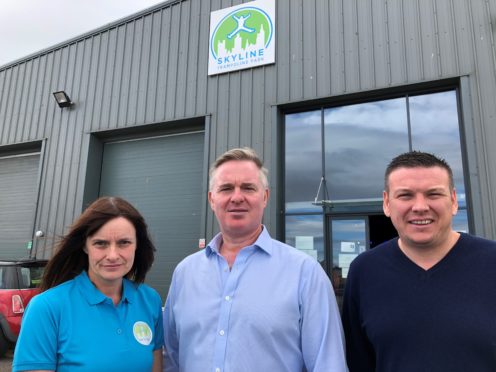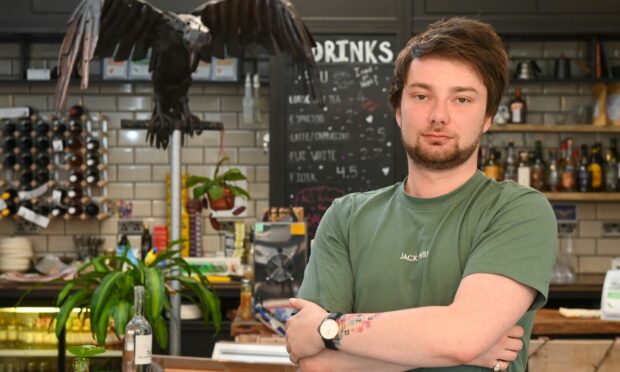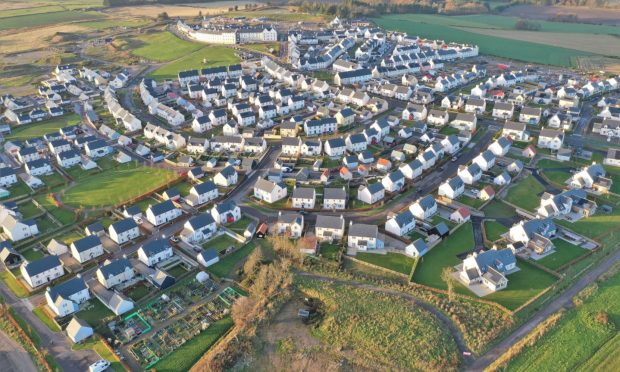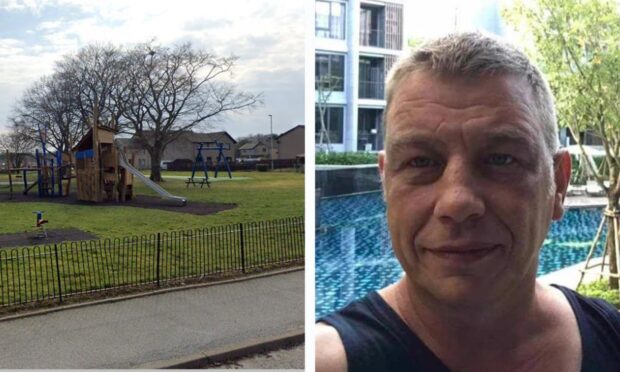A north-east trampoline park’s “crushing” business rates bill is 50% more than a similarly-sized development in the Central Belt.
John and Julie Mackenzie opened Skyline in Inverurie 18 months ago after they were inspired by a visit to a trampoline park while on holiday.
The pair took over a 30,000 sq ft warehouse, which had been rented to oil and gas companies in the past, and transformed it into what has become one of the most popular attractions in Aberdeenshire.
>> Keep up to date with the latest news with The P&J newsletter
However they were shocked to learn their property was given a rateable value (RV) of £189,000 – RV is used to calculate rates – with an annual bill of £100,000.
The couple’s shock turned to anger when they realised their bill dwarfed that of the 33,000 sq ft Playsport centre in East Kilbride, South Lanarkshire – which has an advertised rate of just £64, 262 from an RV of £127,000.
Now they say they are working “all day, every day” to keep the business afloat because they had never imagined their rates would be so high.
They have now challenged the bill – more than double than prior to the most recent revaluation – to the Grampian Valuation Joint Board, which deals with appeals.
Mr Mackenzie said: “When the rates assessor came round he told us it had been used by oil and gas businesses in the past.
“But this is a family entertainment business we are running.
“It’s been a very difficult situation for us and we are now appealing the decision.
“But we have been told we might not even hear back if it’s been successful until next year because of the volume of appeals.”
Mrs Mackenzie added: “We have had some management leave and haven’t been able to replace them which means John and I are working all day every day to keep things going.”
RV is based on the rental value of a property on a specific date.
Last year it emerged that firms were being charged by typically more than a fifth because the valuation was based on the period before the oil and gas downturn.
This prompted an outcry and the Press and Journal launched a campaign to try to persuade the Scottish Government to overturn the bills.
Eventually Finance Minister Derek Mackay bowed to public pressure and introduced a 12.5% cap on bills for the hospitality and office sector in the region, which was recently extended until 2022.
The government also commissioned the Barclay Review into the current system, however critics claim this did not go far enough.
Gordon MP Colin Clark has accused the government of “turning a blind eye” to the plight of the region’s tourism and entertainment industry, which he said the economy us becoming increasingly reliant on following the oil and gas down turn.
Mr Clark said: “The entertainment and tourism industry is being hit by crushing levels of business taxes, but the SNP is turning a blind eye.”
“This area has a great entrepreneurial spirit and lots of companies with a real drive to succeed.
“However, the present rates system ultimately amounts to a tax on jobs.
“Employers will cut back to cover rising bills, which is the opposite of what should be happening.
“Here in the north-east, tourism and entertainment businesses are becoming increasingly important as we work to diversify our economy and become less reliant on oil and gas.
“However, I am very concerned to hear about huge disparities in the way different premises and sectors of the economy are treated.
“It is time for a review, and I am urging the finance secretary to think again. We need to grow our economy – not strangle it by overtaxing enterprise.”
A Scottish Government spokesman said: “We are doing all we can to support the Scottish economy, including maintaining a competitive non-domestic rates regime for businesses in Scotland. We also currently provide the most competitive package of rates reliefs in the UK, worth around £720million, including the Small Business Bonus Scheme, which alone lifts over 100,000 properties out of rates altogether.
“Our current transitional rates relief scheme will also remain in place until 2022 and is expected to save businesses in the hospitality sector and offices in the north-east of Scotland over £15 million this year.
“We will set out plans for non-domestic rates in 2019-20 in the Scottish budget next month.”
The changes to business rates
Valuations in the north-east went up a fifth on average, while in Scotland as a whole, they were either the same or slightly down.
A total of 10,058 premises across the north-east are currently under appeal.
The last rates revaluation that had a higher percentage was 1995 when 38.8% appealed, although this amounted to 9,501 in total.
By law, all appeals have to be answered by September 2020.
Grampian rates assessor Ian Milton, who is also vice-president of the Scottish Assessors Association, previously said he understood the level of opposition to the rates revaluation.
“Budgets do not take kindly to sudden shocks. You have to find a way to smooth the peaks and troughs,” he said.
But he also claimed that Holyrood officials had been supplied the figures in 2016 and it had been “quite easy to see the direction of travel”.
He suggested that more frequent revaluations than the present five–year cycle might help prevent a repeat of the present anger.
Among the key recommendations of the Barclay Report were that arm’s length external organisations (ALEOs) which run culture and sports venues should no longer be exempt from paying business rates.
However the Scottish Government decided to maintain the benefit for existing ALEOs but remove it from any new organisations.
Aberdeenshire Council fell foul of this change and was forced to scrap its plans for a sports and leisure trust.
The report also recommended that independent schools should no longer be exempt from rates.
Finance Minister Derek Mackay introduced this change but also reminded councils they had the powers to offer relief to businesses – a position that was branded as “passing the buck” by some.










